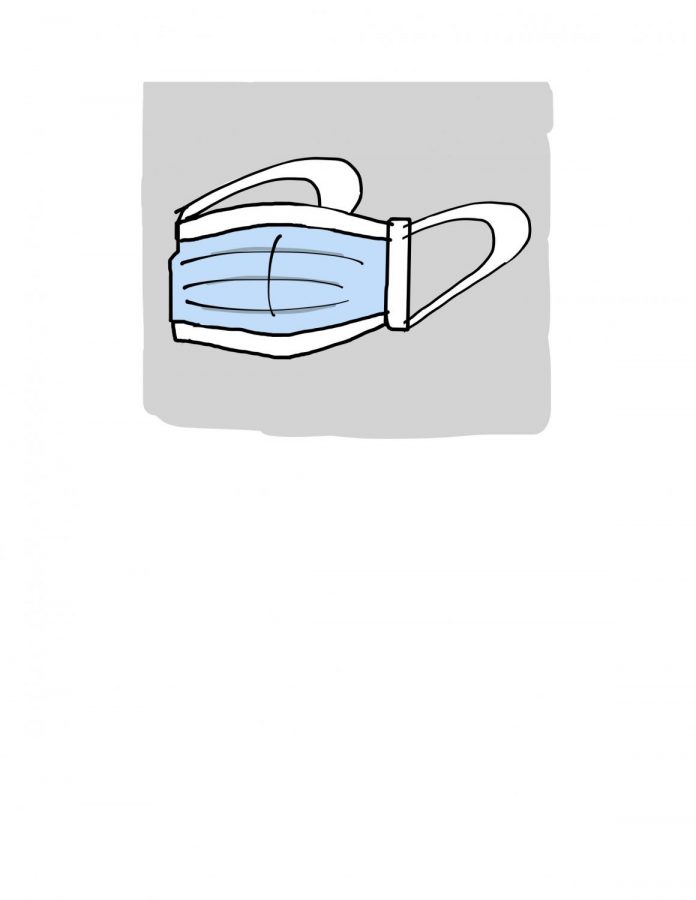Consumption of Disposable Masks During the COVID-19 Epidemic
A Face Mask
December 3, 2020
The 2020 CoronaVirus epidemic has killed over 1 million people worldwide and caused a spike in the demand for disposable sanitation supplies. The sudden necessity for face coverings is also apparent as this is the best way to prevent contracting it.
According to the CDC, “The primary role of wearing a covering is to reduce the release of infectious particles into the air when someone speaks, coughs, or sneezes, including someone who has COVID-19 but feels well.”
However, the ecological impact of plastic, disposable masks negatively affects the planet and its animals. While possibly perceived as socially conscious and aware, disposable masks are bad for the environment due to their plastic and fossil fuel-derived materials, and each month, about 89 million disposable masks are needed in response.
The U.S. National Library of Medicine said the “demand [for masks] has resulted in an unprecedented rise in the global production of face masks which are produced using polymeric materials. Major players in face mask production have therefore scaled up their output.”
According to the doctors at Code Blue, a world-wide healthcare organization, this reliance during the virus outbreak has increased the amount of waste in the oceans.
“Whales and dolphins [have been] washing up with plastic bags inside their guts… A similar thing could happen with these masks. They also shed tiny harmful microplastics into waterways, which may be consumed by unsuspecting fish,” said Dr. Tan Poh Tin.
An easy way to dispose of a plastic mask is to cut off the strings before discarding. This reduces the possibility of dangerous environmental impacts, such as marine life being tangled and stuck within the strings.
Wearing reusable face coverings is also a more environmentally conscious choice than medical masks because of the lack of waste they contribute. These masks can easily be made with sheets, bandanas, or t-shirts, all with multiple layers or tightly woven cloth.
Fabric face coverings can be reused after washing with hot water and soap to eliminate the possibility of an infected mask. Unlike disposable masks, the material of cloth will not degrade over time after washing and therefore is better protection for the citizens and for the world.






